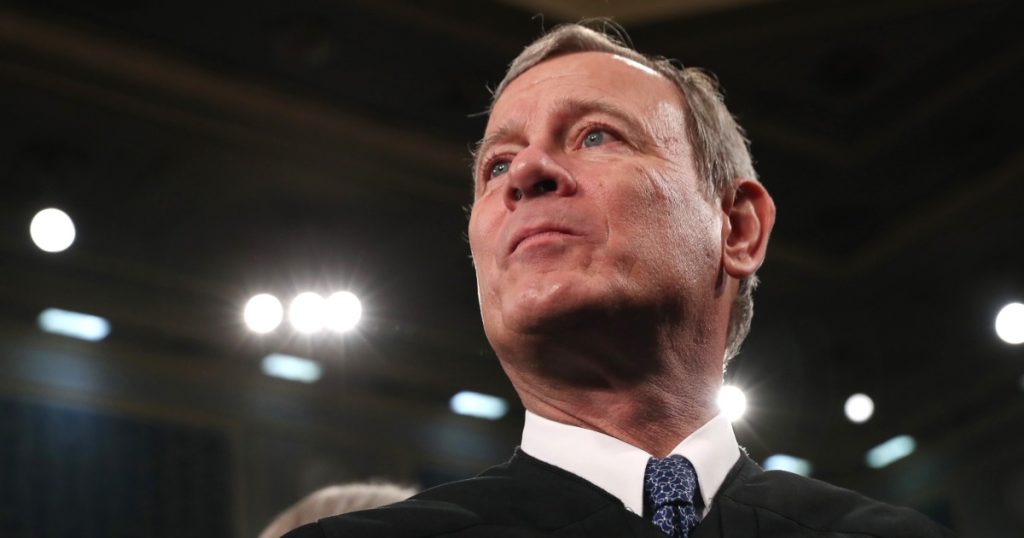Chief Justice John Roberts declined to meet with Democratic senators to discuss Supreme Court ethics issues after controversial flags were flown at Justice Samuel Alito’s houses. Roberts cited concerns about maintaining judicial independence and noted that meeting with representatives of one party who have expressed interest in matters pending before the court would be inadvisable. Last week, Senators Dick Durbin and Sheldon Whitehouse asked Roberts to address the Supreme Court’s ethics crisis following reports that flags flown at the Capitol building on Jan. 6, 2021, were displayed at Alito’s homes.
Roberts’ refusal to meet with the senators was not surprising, as he declined to attend a hearing on the ethics issue last year for similar reasons. The senators had asked to meet with Roberts as soon as possible and renewed their call for the Supreme Court to adopt an enforceable code of conduct for justices. However, Alito has sent letters to Capitol Hill this week declining to step aside from cases involving Trump or Jan. 6, stating that the high standard for recusal was not met as the flags were flown by his wife and he had no involvement in the decisions.
An upside-down U.S. flag was seen at the Alito home in Virginia, while a flag associated with conservative Christians was seen at the family vacation home in New Jersey. Alito stated in his letters that a reasonable person not motivated by political or ideological considerations would conclude that no recusal was required. The Supreme Court adopted a new ethics code in November, which has attracted criticism because justices themselves have the final word on how to apply it. The controversy surrounding the flags flown at Alito’s homes has raised concerns about the need for a more enforceable code of conduct for Supreme Court justices.
The refusal of Chief Justice Roberts to meet with Democratic senators and discuss Supreme Court ethics in the wake of the flag controversy at Justice Alito’s homes highlights the ongoing concerns about judicial independence and the need for a more enforceable code of conduct. While the court adopted a new ethics code in November, critics argue that the justices themselves having the final say on its application raises questions about the effectiveness of the code. Alito’s decision not to recuse himself from cases involving Trump or Jan. 6 due to his wife’s involvement in flying the controversial flags has further fueled the debate over the need for clearer guidelines on recusal and ethical conduct. The controversy surrounding the flags flown at Alito’s homes underscores the challenges facing the Supreme Court in maintaining public trust and credibility in the face of perceived ethical lapses.


